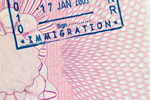Tips for expats on adapting to totally unfamiliar cultures

Tips for expats on adapting to totally unfamiliar cultures
Adapting to a new environment may seem the natural thing to do for today’s huge expat army, but cultural and other differences can easily interfere with the process if not researched and taken into account. For the majority of newly-arrived expats, learning the new language is the absolute priority, and should be started before arrival in order to give you at least half a chance of understanding issues such as visas, health insurance and legalities.
Admin procedures are paramount, with opening a bank account, getting a driving license, registering for electricity and internet services and buying a car almost impossible without at least a basic knowledge of the new language. Another possible problem you might not have factored in is the time difference between your new location and the home country. Due to internet services such as Skype, keeping in tough with loved ones at home has become far easier , but even simple voice calls in the middle of the night aren’t likely to be well-received by your family and friends!
Once you’ve a grasp of the local language and have made a few friends, the tricky issue of cultural issues kicks in, with the possibility of its turning a normally gregarious expat into a hermit overnight. Advice from seasoned expats is the best way around this social intercourse dilemma. Research on your new country’s healthcare system before you arrive is recommended, as the majority are difficult as regards getting to grips with the details. Most systems are fairly difficult to navigate, especially as regards charges, exemptions and existing conditions, with help from a long-stay expat friend more than valuable.
Another issue is the local time schedule in your chosen destination, especially as regards everyday activities such as mealtimes. For example, if you’re used to eating at 6 p.m. in the home country and the evening meal in your new home is taken at 9.p.m., it’s not only your stomach which can get confused! One important difference which can trip up unaware expats is religion and the customs associated with it. Unfamiliar requirements such as fasting, business closures for days or weeks and even dress codes are pitfalls waiting to happen to unaware, newly-arrived expats.
Units of measurement are another destabilising reality of living overseas, with kilos, degrees Celsius, metres and even calendars lurking to trip up the unwary. In addition, holidays and the reasons behind them can also confuse, as can finding out whether or not your home country’s days off are celebrated.
Related Stories:
- Is Kuwaitization the unintended result of the oil price crash? - July 20, 2020
- Expats in Malaysia still banned from overseas travel - July 17, 2020
- HSBC Asia to cut back on internal expat relocations - July 16, 2020
- Tips on integrating for newly-arrived expats - July 15, 2020
Latest News:
- Tips on a trouble-free relocation as an expat overseas - July 20, 2020
- Expats find peace in the covid-19 refuge of Dahab town - July 20, 2020
- Is Kuwaitization the unintended result of the oil price crash? - July 20, 2020
- Expats unhappy abut changes to Korean points-based visa system - July 17, 2020
- Chiang Mai and Bangkok no longer bargain locations for expats - July 17, 2020
- Expats in Malaysia still banned from overseas travel - July 17, 2020
- Vietnam welcomes expats to its safe, affordable lifestyle - July 16, 2020
- Asian tiger economies reach out to expats in Hong Kong - July 16, 2020
- HSBC Asia to cut back on internal expat relocations - July 16, 2020
- Tips on integrating for newly-arrived expats - July 15, 2020


